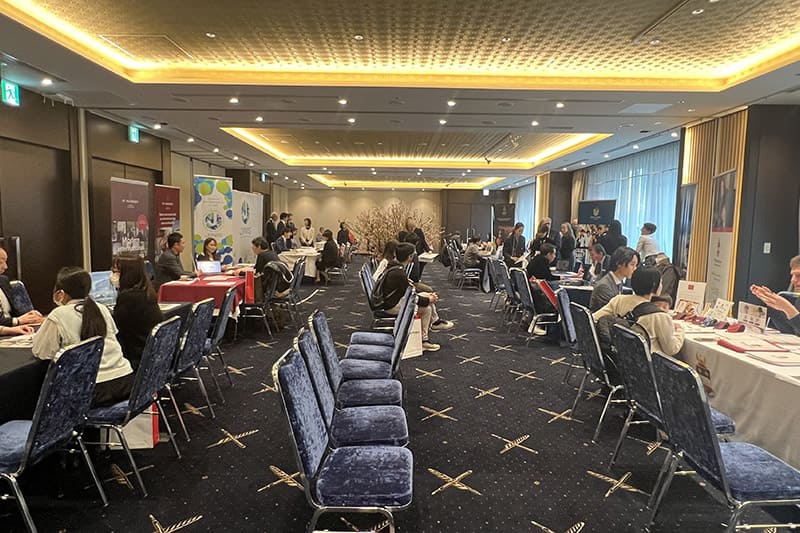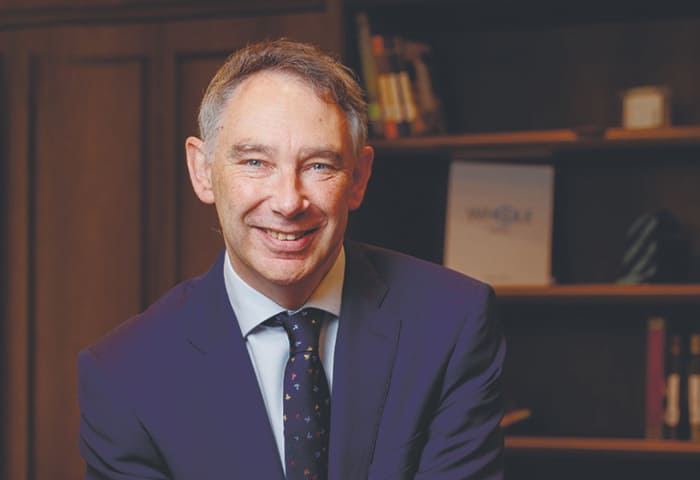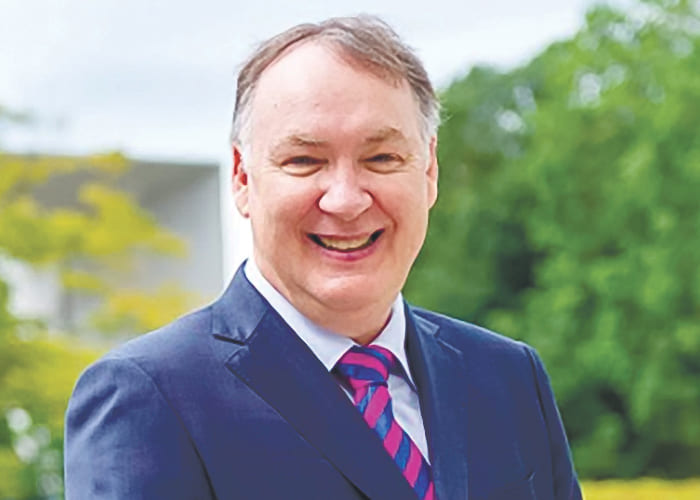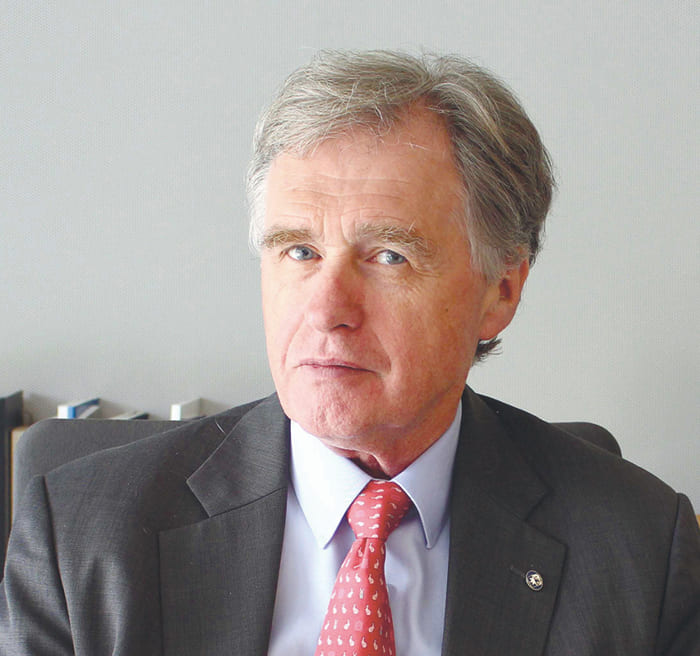April 30, 2025
‘Boarding schools are here to stay’: Educator Baugh shares wisdom
Contributing writer
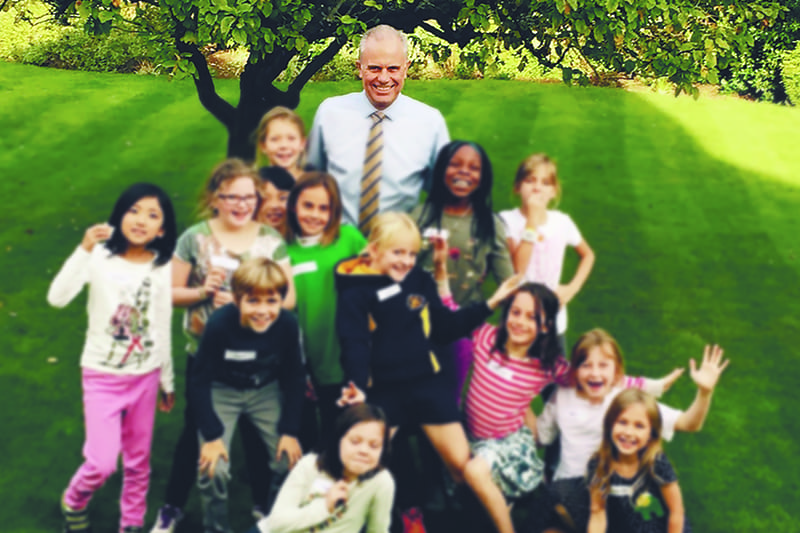
For John Baugh, boarding school has been so much more than a chapter of his childhood. He has dedicated his life and career to ensuring the safety, well-being and development of the students who have been trusted into his care as a boarding school teacher, headmaster and adviser.
Baugh spoke with genuine passion as he described his mission to fiercely protect his students by creating a culture of kindness, undoubtedly leaving a lasting legacy of positivity. There are so many layers that go into the personal, social, emotional and, of course, educational development of each student, especially in a boarding school environment. Baugh is very intentional in cultivating spaces that allow students to thrive on all three fronts, always prioritizing and reiterating that we must be kind to each other.
As adviser to the prestigious Jinseki International School in Hiroshima, the first junior boarding school of its kind in Japan, he is sharing his experiences and perspectives at a time when boarding education has become an increasingly prominent option among families that want to prioritize bilingual English/Japanese education and academic excellence.
Childhood experiences
Baugh spent his childhood in boarding school in both the U.K. and Africa from the age of 6. He has firsthand experience of how wonderful it can be when the schools and staff are fantastic, and how detrimental it can be when they are not. As a child, the teachers he had in boarding school had a great deal of control over the kind of environment he spent his daily life in.
“I had several outstanding, inspirational teachers. I also had some terrible, unkind teachers,” he recalled. Whether one has firsthand experience of life in a boarding school environment or not, it is not difficult to imagine how a small child whose life in and out of the classroom is spent physically at school would feel when their teachers do not have their best interests at heart. Due to the tremendous impact his time in boarding school had on him, Baugh realized he could do things better and vowed to spend his life being the person he needed when he was a child.
As he grew up, he went to university in England and played professional soccer from age 20 to 21. Although he had the opportunity to continue with his athletic career, he was determined to stick with his goal of entering the education field.
After excelling in his role as a teacher, he became the youngest appointed headmaster in the U.K. at the age of 29. He remained a headmaster for 30 years at a few different boarding schools, with the last 15 years being spent as headmaster of the prestigious Dragon School, Oxford. In this role, he prioritized nothing above the children’s physical and psychological safety. “If the ultimate aim of education is to promote human flourishing, it is essential that children feel safe and live without stress. In this way, they will want to learn and can learn,” he said. While of course the academic side of his school was always held to the highest standards, Baugh understands instinctively that in order for children to be set up for success in an academically rigorous environment they must feel safe and secure. Students must be well taken care of and they must trust the adults around them to protect and nurture them.

First, be kind
Teachers are not allowed to shout at children, and while he acknowledges the need for healthy boundaries between students and staff, he never strays from the clear guiding principle that everyone must be kind to each other. “There are three rules in life,” he said. “The first is to be kind. The second is to be kind. The third is to be kind. The children are now saying ‘be kind, be kind, be kind.’ This is the one big message that is constantly reinforced.” By seeking out the most compassionate staff and continuously emphasizing to students and teachers the importance of kindness above all else, Baugh successfully created environments where everyone in the school was able to thrive. He finished his headmaster career in 2017, and went on to serve as executive director of a boarding school in Kenya. Also, since 2017, he has served as a trusted adviser for boarding schools around the world, including here in Japan.
Commitment to this level has required a tremendous amount of work and dedication. He often worked seven days a week for 15 hours a day. When asked how he was able to do it all, including dealing with the many difficult situations and welfare issues that arise when so many people are living together, he remarked, “You have to carry it lightly.” It is not productive to view this role as just a job, counting the hours. To Baugh, it was his way of life. It was a great and wonderful challenge to develop the culture of kindness he envisioned, and he learned many lessons along the way. In recent years, it has become increasingly difficult to navigate as social media has had greater and greater impact on the mental health of young people, and the disruption COVID had to many students’ lives and education has had lasting impacts on their mental health. Baugh continues to be a crusader for the health and well-being of the students at the schools he currently advises, saying, “It is a privilege to protect childhood.”
‘Know your child’
When asked what advice he has for prospective parents considering boarding schools as an option for their children, he urged parents, “Know your child.” Consider their adaptability and independence. Outgoing children tend to do very well in boarding environments, while extreme introverts or particularly anxious children might have a bit of a harder time. Good schools can cater to children of all personalities and dispositions, but being aware of their child’s natural inclinations can help parents determine if boarding school is the right environment. Baugh also advises prospective parents and students to visit schools themselves and look at the faces of everyone in school and observe the relationships between the adults and children. Are they smiling, do they look happy? Is everyone comfortable and are they working positively together? No place will be completely perfect 100% of the time, but it will be possible to sense in the atmosphere if people are generally happy or not. He also mentions that it is good to consider how often the schools will communicate with parents, since when children are living away from home it is very important to maintain honest and consistent lines of communication.
Living at school has many benefits and differences from traditional education that are important to consider. Among the benefits he outlines is the amount of time and energy spent on commuting to and from school that are eliminated. If commuting day in and day out, rain or shine, is exhausting for adults, consider the impact on a small child and how that time and energy can be better spent focusing on academics or extracurricular activities. Particularly in Japan, where English is becoming more and more important as society continues to globalize, being in an immersive bilingual environment gives students more opportunities and access as they grow up and enter the world.
Baugh expresses a lot of intention around balancing and respecting the student’s home country, culture and language while also introducing international perspectives that are harder to find in traditional schools. There is also the benefit of space — he mentioned specifically that at the Jinseki School the children have much more space to run around in than typical urban schools in Japan, as well as beautiful gardens and top-of-the-line boarding quarters. These benefits will undeniably create great personal and academic development for their students.
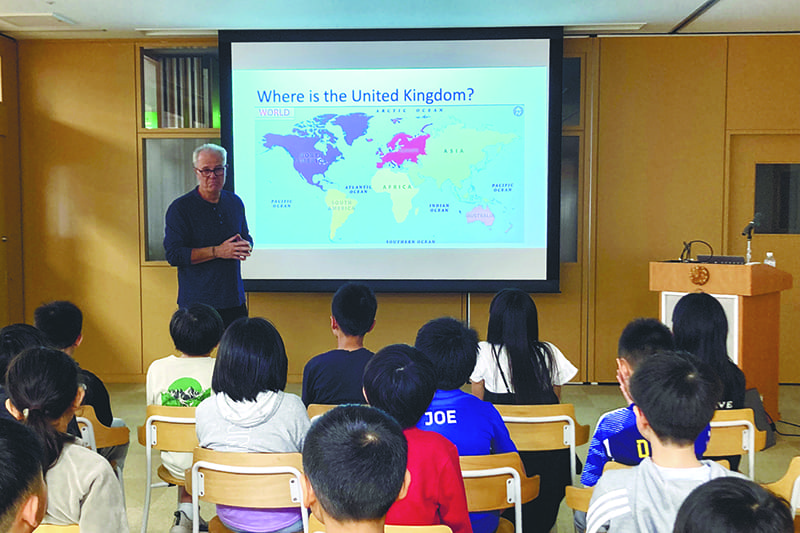
Boarding’s pros and cons
He doesn’t shy away from the challenges associated with boarding, and acknowledges freely that in many ways it is difficult for children to live far away from their families. No matter how amazing of an environment schools have, it is not the same as living at home and teachers are not the same as the child’s parents. However, it is also important to consider that for a large number of students in boarding schools, both parents are working professionals who work long hours and spend most of their time outside of the home. While there is no alternative for a child’s family, in many cases children receive more dedicated attention in boarding schools than they would have at home. For many families and many students, having this option can provide a solution that complements their situation. “Boarding schools are here to stay — parents will always choose to send their children there,” he noted. As long as parents and students have trust in the school to provide a happy and healthy environment for students to learn in, boarding schools will remain a top option for families with these needs.
Baugh’s perspective as both student and educator in boarding school environments, paired with his sense of duty toward his students and staff make it clear why he has been trusted with the lives and educations of so many. Looking to the future, he hopes that as our understanding of child development continues to deepen, boarding schools will get better and better. As long as there are people like John Baugh to lead schools and ensure the welfare of students and staff, there is much to look forward to in the progression of boarding schools around the world. Particularly in Japan, where it is a newer and nontraditional option for parents and students, it is exciting to imagine the projection and innovation that is possible. It is safe to say Baugh was able to achieve the most worthy goal of growing up to be the educator and headmaster he needed when he was a child in boarding school. For that, countless students are grateful.


